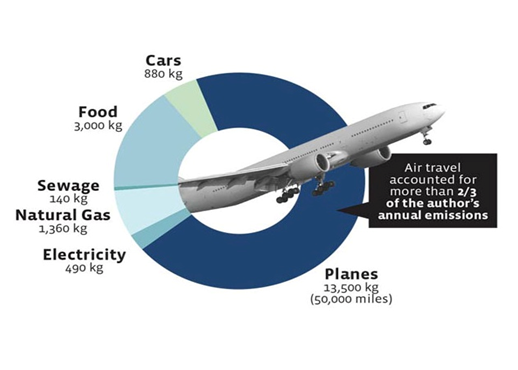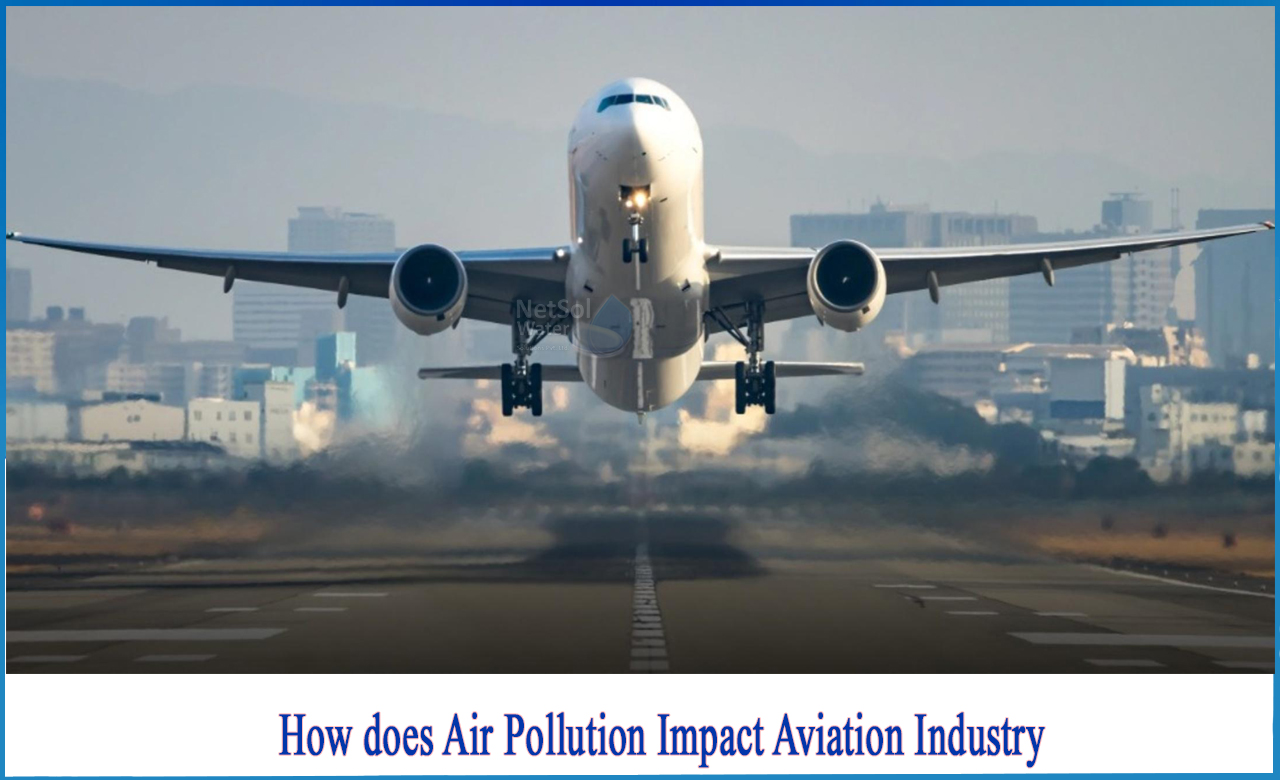How does Air Pollution impact Aviation Industry?
Aircraft engines generally combust fuel efficiently, and jet exhausts have very low smoke emissions. However, pollutant emissions from aircraft at ground level are increasing with aircraft movements. In addition, a large amount of air pollution around airports is also generated by surface traffic.
The main pollutant of concern around airports is nitrogen dioxide (NO2).
NO2is formed by nitrogen oxide (NOX) emissions from surface traffic, aircraft and airport operations. PM2.5 is also of concern, since particulate emissions from jet exhausts are almost all in this fine fraction.
NOX in the lower atmosphere contributes to the production of ozone; ozone in the lower atmosphere is a pollutant, and contributes to global warming. Nitrogen oxides from high-altitude supersonic aircraft are thought to damage the stratospheric ozone layer, the protective layer that filters out harmful radiations from the sun.
The International Civil Aviation Organization (ICAO) sets international standards for smoke and certain gaseous pollutants for newly-produced large jet engines. It also restricts the venting of raw fuels. The latest standards came into effect in 2013 and applied to engine types certified after this date. Reductions in emissions from aircraft engines have generally been lower in recent years than in other sectors, where technologies such as selective catalytic reduction and exhaust gas recirculation have been employed. There are also increasing numbers of larger aircraft movements, which have disproportionately higher emissions than smaller aircraft.

Aviation is also a significant source of carbon dioxide emissions, and presents a major threat to Government targets in terms of emissions growth.
This is for three reasons,
- firstly aviation is predicted to grow significantly,
- secondly emissions at altitude however are thought to have a greater effect on climate change than those at ground level, and
- finally there is no practical alternative to kerosene fuelled jet engines currently on the horizon. As other sectors reduce emissions aviation is therefore likely to become responsible for a far larger proportion of global climate change emissions.
IMPACT ON ECONOMY
Under international law, aviation fuel for international flights is exempt from taxation, which means air travel is relatively cheap. This also reduces the incentive for airlines to invest in more efficient aircraft. They could be further incentivised via fuel tax (which could be levied for domestic flights). This could:
· ensure airlines pay for the pollution they cause, like other transport operators
· encourage the development of more fuel-efficient aircraft
· help reduce the demand for air travel as other options become more competitive
Policy should progressively seek an equitable cost/taxation basis across all modes of transport. In particular, all possible attempts should be made to ensure that the costs of aviation fully include the environmental and social costs, in accordance with the “polluter pays” principle.
The Government should also acknowledge the fact that the tax free status of aviation fuel effectively acts as a subsidy for the aviation industry, and should therefore fully factor this into its economic analysis of the costs and impacts of the industry.
Netsol Water is Greater Noida-based leading water & wastewater treatment plant manufacturer. We are industry's most demanding company based on client review and work quality. We are known as best commercial RO plant manufacturers, industrial RO plant manufacturer, sewage treatment plant manufacturer, Water Softener Plant Manufacturers and effluent treatment plant manufacturers. Apart from this 24x7 customer support is our USP. Call on +91-9650608473, or write us at enquiry@netsolwater.com for any support, inquiry or product-purchase related query.



